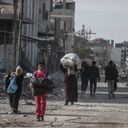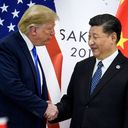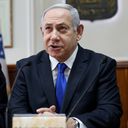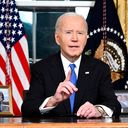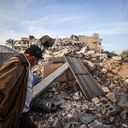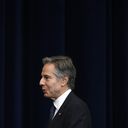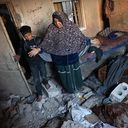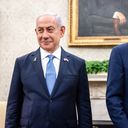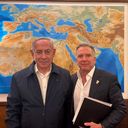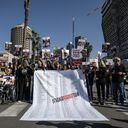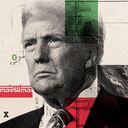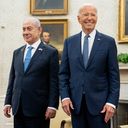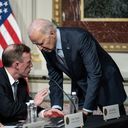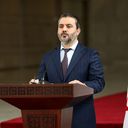Three Israeli hostages released after Gaza ceasefire begins
Three Israeli female hostages were released by Hamas on Sunday, six hours after the Gaza ceasefire came into effect.
Why it matters: This is the first hostage release since November 2023, when the first deal led to the release of more than 100 people.
- The released hostages, Romi Gonen, Emily Damari and Doron Steinbrecher, spent more than 470 days in captivity. Damari is a dual British-Israeli national.
Driving the news: Hamas armed militants released the three hostages in the center of Gaza City with hundreds of cheering Palestinians encircling the cars.
- They were then transferred to the Red Cross, which drove them in a motorcade to an IDF force in the southern Gaza Strip and from there to Israeli territory.
What they're saying: "Today the guns in Gaza have gone silent," Biden said in a speech Sunday where he presented the ceasefire and hostage deal in Gaza as vindication of his policy for the last 15 months.
- "I worked in foreign policy for decades and this is one of the toughest negotiations I have been part of. ... The road to this deal has been not easy at all and a long road, but we reached this point today because of the pressure Israel built on Hamas, backed by the United States," Biden said.
- He said that unlike what his critics say, without his support for Israel there would have been a wider war in the region.
- Biden added that the region has been transformed with Iran weakened, a new president in Lebanon without ties to Hezbollah and the fall of the Assad regime in Syria.
Between the lines: Hundreds of aid trucks have entered Gaza to bring supplies to civilians, and on the 16th day of the ceasefire the second phase of negotiations will begin, Biden said.
- That phase, he said, will include "the release of Israeli soldiers and a permanent end of the war without Hamas in power or able to threaten Israel."
What's next: "Now it falls on the next administration to help implement this deal. I was pleased to have our teams speak as one voice in the final days - it was effective and unprecedented. ....I am looking forward to this deal being fully implemented," Biden said
- President-elect Trump's national security adviser Mike Waltz on Saturday told the families of American Israeli hostages that the Trump administration is committed to making sure all phases of the hostage-release and ceasefire deal are implemented by Israel and Hamas.
- At least two American citizens being held by Hamas are expected to be released in the coming weeks under the ceasefire terms, Biden said Sunday.
State of play: 30 other hostages are expected to be released over the next 42 days as part of the first phase of the Gaza hostage and ceasefire deal which was brokered by the U.S., Qatar and Egypt and signed on Thursday.
- 90 Palestinian women and teenagers were released on Sunday from Israeli prisons.
Zoom out: More than 46,000 Palestinians and more than 1,600 Israelis — most of them civilians — have died since the war began following the Oct. 7 attack by Hamas.
Go deeper... In photos: First Israeli hostages, Palestinian prisoners released in ceasefire
Editors' note: This story has been updated with comments from President Biden and Mike Waltz.



